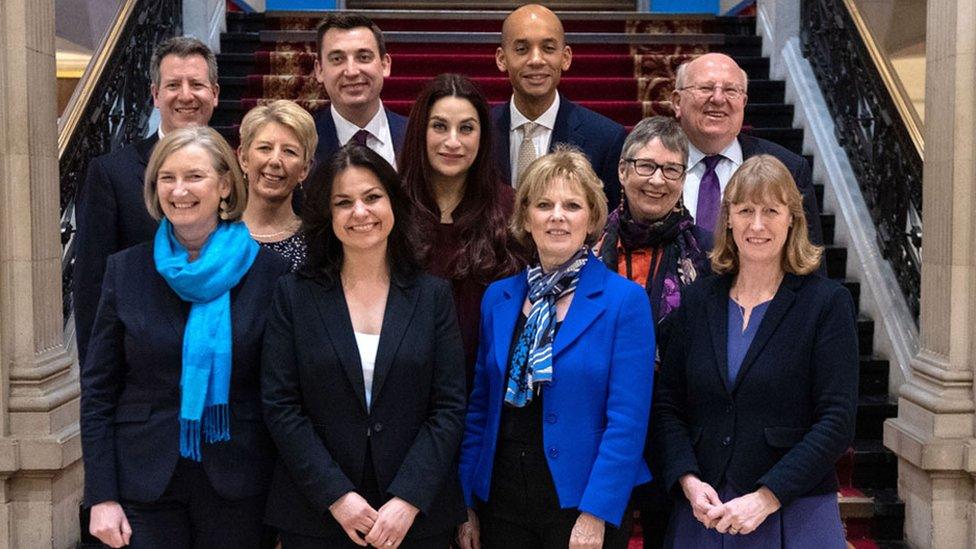Election 2019, Your Questions Answered: What happens if a candidate is dropped?
- Published

At least 19 candidates across the UK have now been dropped by political parties over alleged offensive comments or behaviour during the general election campaign. But what does it mean for voters and does a candidate's conduct matter? Here, we answer a selection of your questions.
What happens to all these candidates who have been deselected by their parties but their name still appears on the ballot paper? David Cormack, Dumfries and Galloway
They still appear on the ballot paper alongside the name of the political party they were originally put forward by. This is because the deadline for candidates to be nominated for the general election passed on 14 November. After this point the ballot papers were produced and printed with postal voting already under way. If the candidate dropped by a political party won the seat then they would enter Parliament as an independent MP.
The electorate vote in an MP to become MP for a particular party. If the MP wants to change party should their seat go up for a by-election? Steven Terry, South Gloucestershire
Westminster by-elections occur between general elections and, according to the Parliament, external, do not have to take place if an MP changes party political allegiance. Instead, typically they take place when an MP resigns, dies or is declared bankrupt. Former Tory MP Douglas Carswell triggered a by-election when he defected to UKIP in 2014 but there was no obligation for him to do so.

CONFUSED? Our simple election guide, external
POLICY GUIDE: Who should I vote for?, external

Can MPs be held to account if the election promises are false and do not make their promises a reality? Eric Meadows, Northamptonshire
The short answer is no. The main opportunity for politicians to be held accountable to the electorate is at the next election, but there are now rules for getting rid of an MP before then. Introduced in 2015, a recall procedure, external can be triggered under certain circumstances, such as an MP being convicted of a criminal offence.
Are you voting for the candidate, or for the political party, if the candidate is affiliated to a party? F Livingstone, Dunfermline
You are voting for a candidate, not a party, and the Electoral Commission guidance, external is that voters should mark their ballot paper by placing an 'X' in the box next to the candidate of their choice. But of course the candidate is usually standing for a party, and would be expected to follow its programme.

Eleven MPs carried on as an independent group after quitting their parties over Brexit
How can an elected politician once elected then change party or declare themselves independent? R McIlwaine, Devon
An MP can declare themselves as an independent at any time after being elected or stand for election without the support of a party. In February, 11 MPs quit their respective parties over Brexit and carried on as an independent group despite calls for them to quit and spark a by-election.
Is it legal to use lies and misinformation about opponents in an election campaign? Tina Helfrich, Birmingham
It is illegal to lie about rival candidates during an election but it is a complicated area of law. Section 106 of the Representation of the People Act, external states that a person who, during an election or for the purpose of affecting the return of a candidate, "makes or publishes any false statement of fact in relation to the candidate's personal character or conduct shall be guilty of an illegal practice". In 2015 a legal action challenging the election of Lib Dem Orkney and Shetland MP Alistair Carmichael failed despite judges ruling Mr Carmichael had told a "blatant lie" in a TV interview about a leaked memo. The judges ruled it had not been proven beyond reasonable doubt that he had committed an "illegal practice".